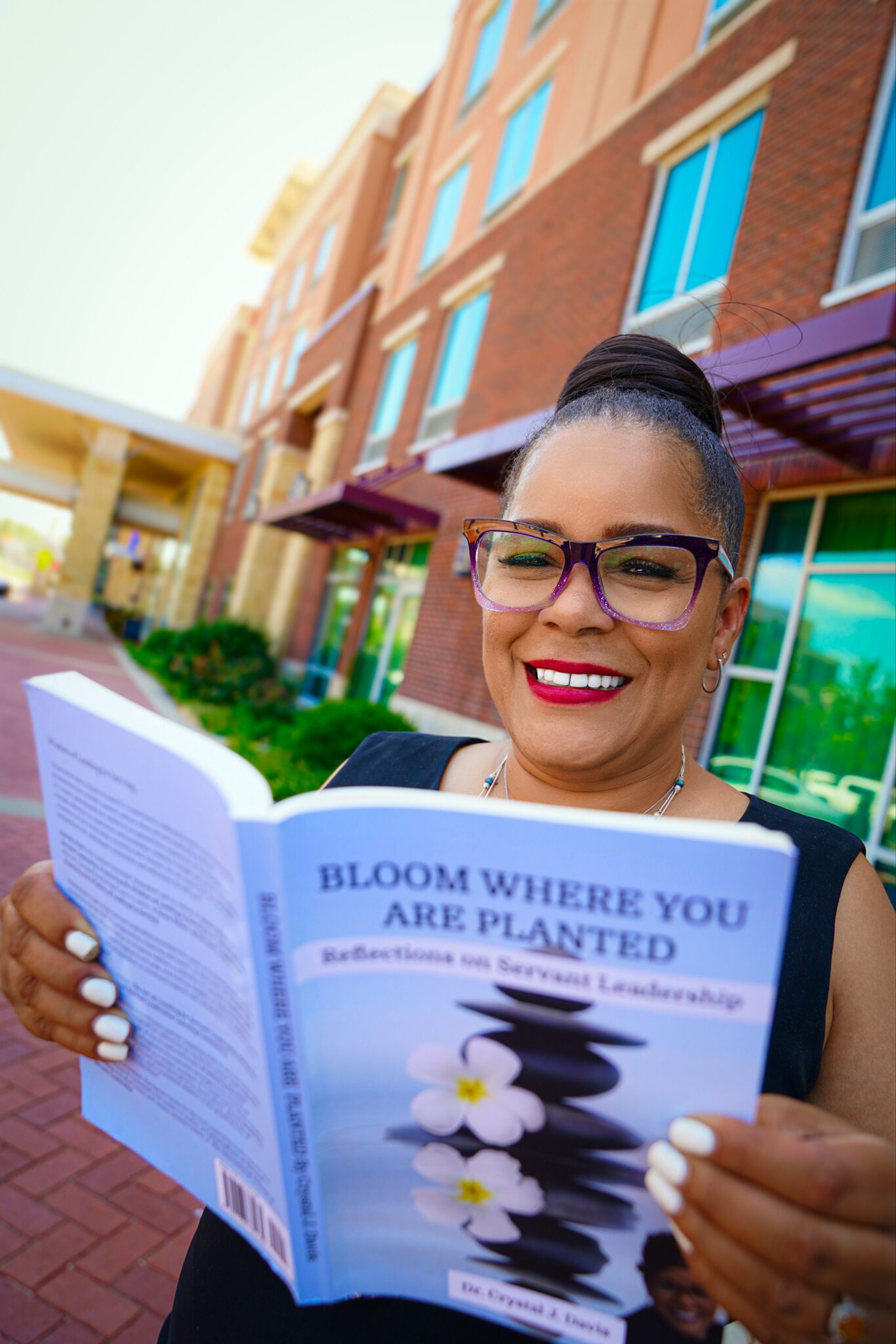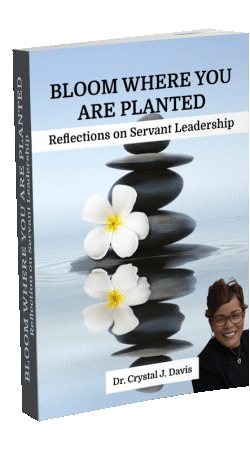
I have been working with ULEAD, Inc. for several years now. My service began over several conversations with Ritch Hochstetler, Chief Ideation Trailblazer of ULEAD, Inc., who has 30 years of innovating and delivering training experiences to youth and youth workers. During our initial virtual coffee meetings, we discussed servant leadership, the importance of bringing team-based experiences to youth and youth workers, race and race relations, and other important philosophical conversations around the human condition. We traded life stories and lived experiences. I liked him right off the bat.
After several conversations, (one of which happened at The Greenleaf Servant Leadership Conference 2017 with one of the ULEAD, Inc. staff persons, Ben Rheinheimer), I was invited to the ULEAD Board of Directors, and I happily accepted. My service has been one of the most enlightening around servant leadership to date.
Ritch posted a blog post, and I asked permission to post it. This was my response to him in an email;
“Good Morning Ritch;
I hope that this email finds you well. First, I want to say again how much I appreciate having known you and to serve with ULEAD, Inc. Our deep and rich conversations have always left me wanting more, and our sharing of experiences and life stories has genuinely been a blessing in my life.
I have a profound respect for you and this blog post. Your authenticity and transparency show up, and I believe this should be shared on every available platform available to us. This piece will bless the world and touch the hearts of people who are open to the idea of humility. I find that you exemplify humility and the openness to keep learning, and to act on what we see can be changed in the world. I love the humility book. This is how I know great minds think alike; I wrote a chapter on it in my book, Bloom Where You Are Planted.
Thank you, Ritch, for this beautiful piece of awareness and a call to action. I feel so blessed to serve ULEAD and to be called your friend. Many Blessings, Crystal”
So that you don’t have to leave this post, I have posted the blog in full length. To learn more about ULEAD, Inc., please click here.
A Fixed Point In A Spinning World: Transforming Injustice Through Humility
Recent events have ripped off the scab of decades of injustice to reveal the gaping wound still festering and bleeding from individual and systemic racism in America. No matter who’s side you’re on, or your political leaning, to deny the reality of the impact of oppressive and dehumanizing attitudes and behaviors has become in itself an act of violence.
How do we, as people and as a society, respond? When inaction and denial become untenable, people rise up. We’ve seen; demonstrations, looting, finger-pointing, cries for reform, violence begetting violence, and calls for peace-making. In approaching all issues, context matters. My context is that of an older white male who has made the commitment to live and lead from the framework of servant leadership. First, let me be clear: Being white, male, and someone who has had the privilege of serving in a leadership role for years has put me squarely in a place of privilege. Second, my servant leadership beliefs and values cannot be used to justify a belief that I have arrived at an evolved attitude or a practice of equity in relationships.
The reality is, I am a part of the problem. In this admission, I am saying that talking about valuing all people, without a plan of action that impacts my behavior, leaves me in the position of silently condoning the problem rather than being a generative participant in the revolution needed to effect real change. Racism has been and continues to be, a deadly mindset that leads to the breaking of people, families, institutions, and our very nation.
So, what am I going to do? Options include; feeling guilty, getting angry, becoming overwhelmed, striking out in overzealous ways to fix things, or (you name it!) What if there is a starting point…a place to orient myself toward others who are also seeking a new path of redemption, equity, and inclusion?
Today I am suggesting that there is a “fixed point in a spinning world.” Every human being approaching this issue needs to come to terms with their context and what it is calling them to do. For me, that fixed point in my context as a white male leader is humility.
The word humility has been around for a very long time, and yet it’s meaning is often misunderstood. It is derived from the Latin word humilis, meaning “low.” In ancient Greek, it literally means “not rising far from the ground.” The Cambridge Dictionary’s definition of humility as a noun is the feeling or attitude that you have no special importance that makes you better than others. This meaning is picked up and expanded upon in the lyrics of an ancient song recorded in the Bible in the book of Philippians; “Let the same mind be in you that was in Christ Jesus, who, though he was in the form of God, did not regard equality with God as something to be exploited, but he emptied himself…” Here Jesus’ attitude is being held up as a word picture for what the attitude for humility looks like. This attitude is one of seeing and believing that every human being is a person worthy of being respected and valued and that no matter what status I have inherited or attained, I am willfully emptying myself of prideful elevation of self.
It’s in a further reading of the lyrics of this ancient song that the meaning of humility, or the ripple effects thereof, are expanded upon. The lyrics go like this; “And being found in human form, he humbled himself and became obedient to the point of death – even death on a cross.” This next step on the journey toward humility ties the outcome of a humble attitude, being humble action or behavior, even if/when that action leads to personal loss. This is a revolutionary idea, that if adopted, could upset the power balance and change the world as we know it.
Humility is a very personal thing based on values, beliefs, and one’s worldview. No one can make you into a humble person, and if you try to act humble without an authentic change of heart, people’s B.S. detectors will all sound in unison. The question is, can humility be learned? In the book, Start With Humility: Lessons from America’s Quiet CEOs on How To Build Trust and Inspire Followers, authors Merwyn Hayes and Michael Comer, the answer is “yes!” Maybe there still is hope for an older white man like me?
Hayes and Comer start by offering defining characteristics of humility, including; humanness, vulnerability, and the ability to keep one’s perspective. Humility is not weakness, the absence of ego, or lack of assertiveness. They go on to lay out a practical process for growing humility as a person. The formula goes like this:
Human Authenticity + Humble Behaviors = Trust/Respect
How does this relate to personal and systemic racism? First, for me as a white man, human authenticity can and must be based on a commitment to empty myself of any and all feelings of superiority – to see myself on ground level, embracing the humanness of others with respect and dignity, no matter the differences. I know I do not have the self-awareness needed to do this on my own. I need Black and Brown and all Minority brothers and sisters to speak truth and tell me what they see, feel, hear, and experience.
On a systemic level, humility requires practices that lead to humble habits and behaviors. These include but are not limited to; admitting mistakes, acknowledging where the system is broken (even if I struggle with the false belief that I’m not responsible for breaking it,) admitting my ignorance for all that I don’t know or can never fully understand, and striving to be empathic at every stage of the journey. As it turns out, these are practices I can commit to grow habits and attitudes that connect my heart to behaviors that have the potential to effect lasting change.
In Jesus’ response in the ancient song recorded in Philippians, we see that humility was very costly. I believe this same is true for me, and for us today. The world around us is spinning out of control on an axis of racism and violence. Humility is a fixed point. Change starts one person at a time. Change starts with the transformation of one human heart. Change starts with me. Will you join me?








